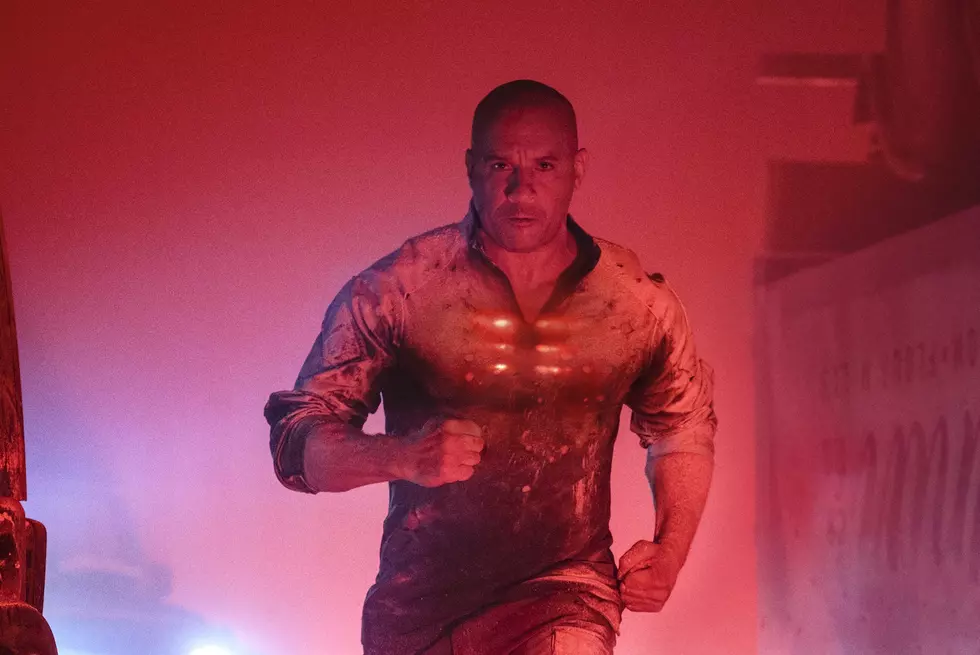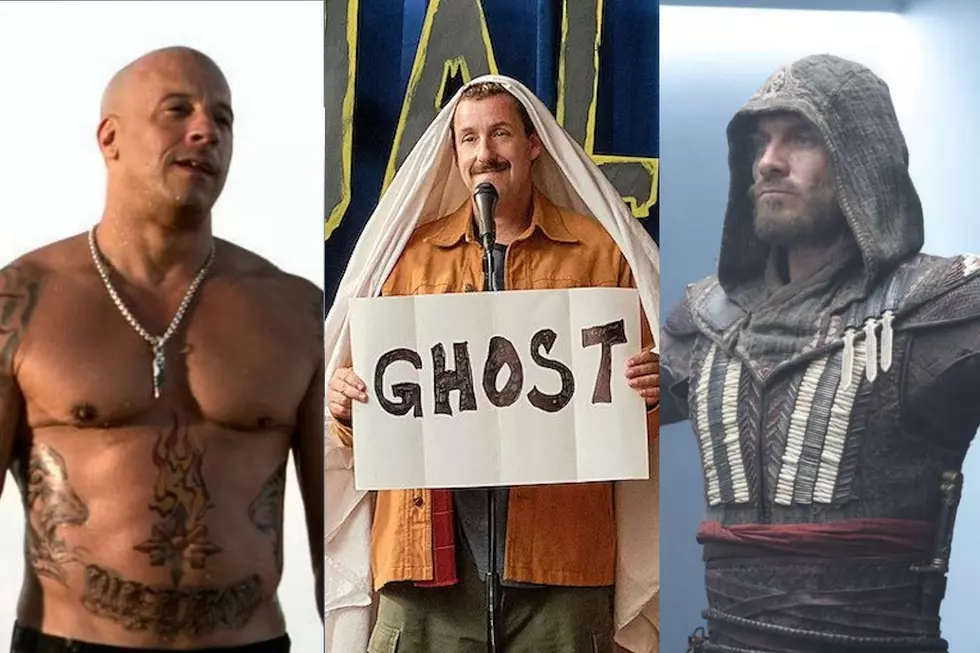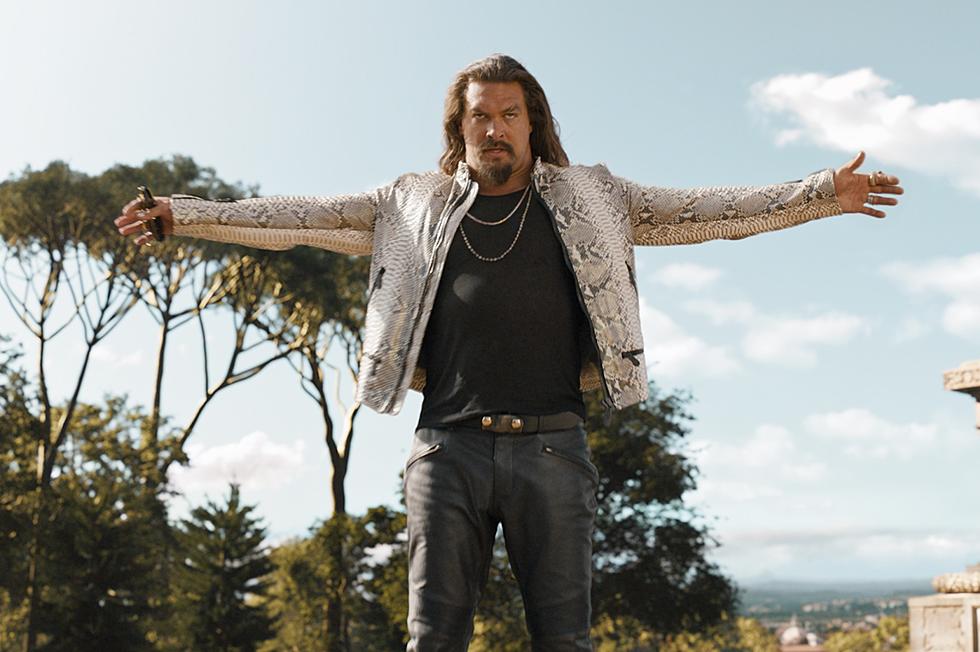
‘Bloodshot’ Review: A Throwback to the ’90s (Not in a Good Way)
The comic-book superhero Bloodshot exists outside the Marvel or DC universes. Created by Kevin VanHook, Don Perlin, and Bob Layton, his adventures are published by a smaller company called Valiant Comics. Although Valiant still exists today, its heyday came in the early ’90s, when its titles briefly competed with Marvel and DC atop comics’ monthly sales charts. 1993’s Bloodshot #1, for example, sold in the neighborhood of one million copies. If it came out today, that would make it the best-selling comic in the entire industry.
The Bloodshot movie we finally got in 2020 feels like a throwback to that era, when comic books were still treated like fodder for schlockly B-pictures. Back then, superhero movies mostly featured relatively obscure characters like The Crow and The Phantom, and consisted of cheap thrillers made on cheaper budgets by filmmakers who often appeared to have little to no interest in their source material. Hollywood has gotten so good at boiling down comics mythologies that it’s easy to forget how hard it can be to distill a sprawling adventure stretched across decades of stories into two entertaining hours. Bloodshot serves as a painful reminder of that fact.
The character’s basic gist, which varies from iteration to iteration (of which there’s been several over the years), is that he’s a dead man resurrected through the use of “nanites” — tiny machines inside his blood that give him the ability to regenerate any injury, along with enhanced strength and stamina. He’s a combination of Frankenstein and Wolverine with a dash of RoboCop in the mix.
The film version leans particularly on that last part, by casting him as a man haunted by a past he can barely remember. (This paragraph and the next might theoretically qualify as a spoiler, although everything in it was included in the movie’s trailer. If you haven’t seen the trailer and want to go in completely unspoiled, skip ahead past the next image.) Ray Garrison (Vin Diesel) is a heroic American soldier who loves his country almost as much as he loves his wife Gina (Talulah Riley). Then Ray gets captured by a vicious terrorist (Toby Kebbell) who murders Gina in front of him, before putting Ray out of his misery.
Ray awakens in a laboratory run by Dr. Emil Harting (Guy Pearce), who informs him of his new nanite superpowers and introduces him to his co-workers in a sort of freelance group of technologically-enhanced soldiers, including KT (Eiza Gonzalez) and Jimmy Dalton (Sam Heughan). Although Ray’s surprisingly chill about the whole murdered-and-resurrected thing at first, he starts dreaming about his dead wife, who he’s not supposed to remember at all. Then he goes rogue and hunts down the terrorist — at which point we learn that Dr. Harting and his team have been gaslighting Ray this entire time. They use false memory implants to trick him into carrying out targeted assassinations that he believes are righteous acts of revenge.
The fact that Guy Pearce is the one Memento-ing Ray’s brain, is a clever wink from director David S.F. Wilson. The fact that Diesel often plays men haunted by memories of loved ones he couldn’t save could be a clever wink at the actor’s durable onscreen persona, if Bloodshot seemed the slightest bit interested in anything beyond its basic premise and rote, CGI-and-slo-mo-heavy action sequences. It never really does. (The screenplay, which is co-credited to Eric Heisserer, bears few of the bold sci-fi ideas he brought to Arrival.) Instead, Diesel does his standard scowl-and-growl routine, and occasionally gets into fights and chases that feel like they were shot to deliberately obscure stunt doubles or digital effects that aren’t up to par.
At this point, Diesel has this sort of unstoppable antihero down to a science, and if you enjoy his gruff charisma, there’s a fair amount of it on display. Still, Bloodshot’s premise is rife with potential for a film that interrogates superhero conventions. It never even remotely gets there, and the action isn’t exceptional or frequent enough to recommend on the basis of it alone.
Without much in the way of psychology or character development, Bloodshot is basically just a gigantic prologue; the backstory you need to get out of the way to make something more interesting (or at least more fun) about this guy with magic healing blood. Theoretically, Bloodshot is designed to generate more sequels, and maybe even a whole cinematic universe based on Valiant Comics. Based on the quality of this movie, I wouldn’t expect to see it any time soon.
Additional Thoughts:
-The movie goes out of its way not to identify the location of Guy Pearce’s laboratory, which is housed in a big skyscraper somewhere in the Southern Hemisphere. Wherever it is, Bloodshot somehow manages to get from there to London in a private jet in what appears to be about 90 seconds. Literally, no time elapses at all.
-If you care at all about the Bloodshot comics and really like the look of the character, with his chalky white skin and huge red dot on the center of his chest, be aware that there’s about as many shots of Vin Diesel in full Bloodshot regalia on the film’s poster as in the entire feature.
Gallery — The Best Comic Book Movies That Aren’t Marvel or DC:
More From ScreenCrush









